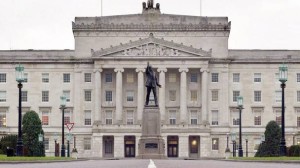
By Sarah Mac Donald - 28 April, 2016

The bishops have called on all parties in Northern Ireland to address, in the next Programme for Government, the disturbing levels of childhood poverty and the systemic issues of social need.
In a pastoral reflection issued ahead of the 5 May Assembly election, the Northern bishops said voting for those who will govern our society “is a moral act”.
Each vote cast, or not cast, potentially influences the values that will shape future law and policy, they stated.
They also appealed for a new and more constructive political culture, based on a shared commitment to the common good and the priorities of citizens rather than on traditional constitutional issues.
And they reminded voters that the social and moral teaching of the Church is clear, that it is never morally acceptable to support any policy that undermines the sacred inviolability of the right to life of an innocent person in any circumstances.
In their statement on Wednesday, they called on all politicians to respect the positive contribution to peace and good relations made by all school sectors and to ensure that all school sectors are treated equally in terms of funding and policy.
They outlined ten questions which Catholics are encouraged to ask candidates who are standing in the Assembly elections.
The reflection reminds Christian voters that they are called to be the leaven in society for “a new social, economic and political order, founded on the dignity and freedom of every human person, to be brought about in peace, justice and solidarity.”
Referring to the failure of the last Assembly to reduce childhood poverty and social need, the appealed to all parties in the Northern Ireland Assembly to address, as the foremost priority in the next Programme for Government, the disturbing levels of childhood poverty here, and the systemic issues of social need that fracture so many homes and communities.
“It is an indictment on the priorities and preoccupations of the last Assembly that Northern Ireland was the only region in the UK where levels of childhood poverty actually increased, with over 101,000 children in Northern Ireland now living below the poverty line,” they stated.
This, they noted, was in spite of the fact that child poverty levels were already more than twice those of other UK regions, and the highest across the island of Ireland, at the time of the Good Friday Agreement.
Northern Ireland also has some of the highest levels of fuel poverty, of working poor, of those on disability related benefits and other forms of welfare support on these islands and is expected to be the last to benefit from any wider economic recovery, they warned.
Referring to “an environment of excessive and even morally questionable austerity policies imposed by Westminster”, they said it was understandable that it was difficult for politicians in Northern Ireland to achieve all they had hoped for in terms of the ‘peace dividends’ of the Good Friday Agreement.
They added that it was “morally and politically inexcusable” that some twenty years after the Agreement, Northern Ireland still experiences the widest gap on these islands between the haves and the have nots, and that this gap is widening further.
The Bishops in the North also warned that the next Assembly term will see further pressures being brought to bear on politicians to introduce abortion to Northern Ireland.
“The moral issue here is not whether what is proposed is abortion ‘on demand’ or some form of so-called ‘limited’ abortion. From a moral point of view, there is no such things as ‘limited’ abortion. Abortion is always the deliberate and intentional taking of an innocent, vulnerable human life, and a direct breach of the commandment ‘Thou shalt not kill’.”
They added, “All forms of direct and intentional abortion contravene this fundamental sacred and human moral principle. The medical prognosis for the life of a child in the womb, or the extent of that child’s disabilities, is no more morally relevant than it is when considering an adult who faces the diagnosis of a life-limiting condition.”
Elsewhere in the reflection the bishops urged people through the candidates to encourage a culture of welcome and hope for all; respect for religious freedom and concern for persecuted Christians; respect for the right to faith-based education in a genuinely pluralist society and support for the family based on marriage between one man and one woman.
They proposed the following 10 questions, based on Catholic Social Teaching, for Catholics to ask candidates standing in the Assembly elections.